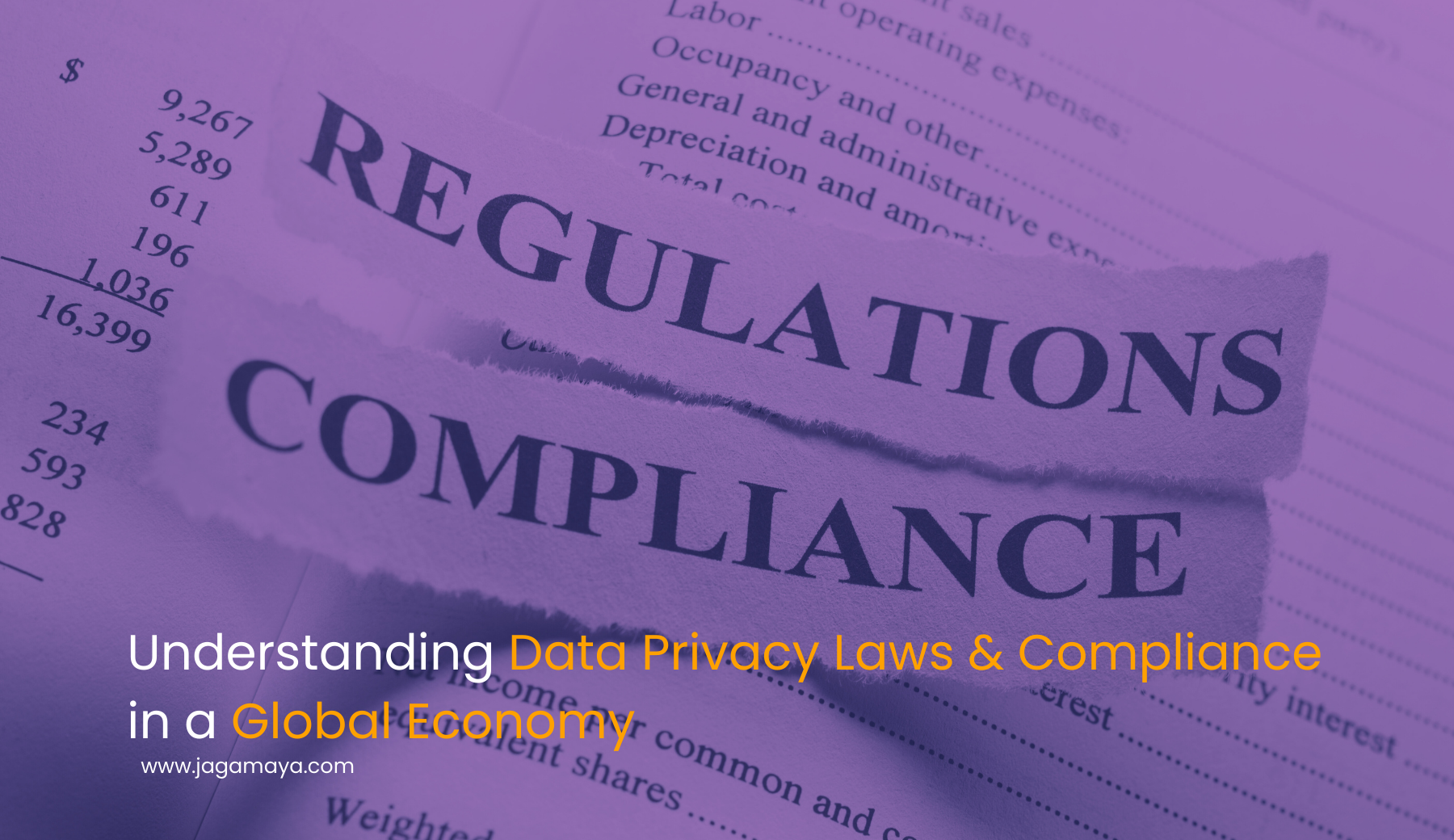In a rapidly digitizing world, where data has become one of the most valuable commodities, protecting personal and organizational information is more critical than ever. For businesses operating across borders, navigating the landscape of global data privacy laws and compliance requirements can be complex and challenging. This blog aims to break down the key data protection regulations worldwide, their implications for businesses, and how organizations can ensure compliance in a global economy.
Why Data Privacy Matters More Than Ever
As data collection becomes ubiquitous—through websites, mobile apps, IoT devices, and more—concerns around how this data is handled have intensified. Data breaches, misuse of personal information, and surveillance have led to a push for stronger privacy regulations worldwide. For businesses, failing to comply not only risks financial penalties but also reputational damage and loss of customer trust.
Major Global Data Privacy Regulations
1. General Data Protection Regulation (GDPR) – European Union
Enforced since 2018, the GDPR is one of the most comprehensive data protection laws in the world. It governs how organizations collect, use, store, and share EU citizens’ personal data. Key requirements include obtaining explicit consent, ensuring data subject rights, and implementing strong security measures. Learn more from the European Commission.
2. California Consumer Privacy Act (CCPA) – United States
The CCPA grants California residents rights to know what data is being collected, request deletion, and opt-out of the sale of their personal information. It applies to businesses that meet specific criteria regarding revenue, data volume, or data monetization. More information here.
3. Personal Data Protection Act (PDPA) – Singapore
Singapore’s PDPA emphasizes consent-based data collection and outlines organizations’ responsibilities in protecting personal data. Amendments have strengthened enforcement and introduced mandatory breach notification. Explore PDPA compliance.
4. Indonesia’s Law No. 27 of 2022 (UU PDP)
Indonesia’s Personal Data Protection Law, modeled closely after the GDPR, mandates strict control over data processing activities and requires local data storage for strategic sectors. It’s a major step in aligning with global standards while asserting digital sovereignty. See details on UU PDP and related regulations like PP 71/2019.
5. Other Notable Regulations
Countries such as Brazil (LGPD), South Korea (PIPA), and India (DPDP Act) have enacted or are developing comprehensive data privacy laws. These often mirror GDPR principles but include local variations and enforcement frameworks.
Cross-Border Compliance Challenges
Operating globally means handling data from multiple jurisdictions, each with unique legal expectations. Some of the biggest challenges include:
- Data Localization Requirements: Many countries, like Indonesia and China, require certain types of data to be stored locally.
- Varying Consent Mechanisms: Standards for consent vary across regions, affecting how businesses design user interfaces and data collection methods.
- Differing Breach Notification Rules: Some jurisdictions require notification within 72 hours, others have different timeframes or thresholds.
- Third-party Data Processors: Ensuring partners and vendors also comply with relevant regulations adds another layer of complexity.
Strategies for Global Compliance
- Conduct a Data Inventory & Risk Assessment Identify what data is collected, where it is stored, who has access, and the legal requirements that apply.
- Implement a Global Privacy Framework Develop a core set of privacy policies aligned with the strictest regulations (e.g., GDPR), and adapt them to local requirements.
- Invest in Data Protection Technologies Use encryption, access controls, and secure cloud infrastructure. Jagamaya’s security monitoring platform Security Event Monitoring supports real-time threat detection and incident response.
- Train Employees on Privacy Best Practices Regular training ensures that all staff understand their roles in protecting data and maintaining compliance.
- Establish a Breach Response Plan Prepare for potential incidents by defining steps for detection, containment, notification, and recovery.
The Future of Global Data Privacy
Data privacy is no longer just a legal issue—it’s a competitive differentiator. Organizations that prioritize transparency, accountability, and user empowerment will not only stay compliant but also build stronger relationships with customers and partners.
As data becomes the backbone of digital economies, expect stricter enforcement, more harmonization between international laws, and greater scrutiny from regulators and the public. Businesses that embed privacy into their DNA—through design, policy, and practice—will be better equipped to thrive in the evolving global landscape.
Need Help Navigating Compliance? Jagamaya provides expert consulting, compliance assessments, and secure infrastructure solutions tailored to national and international data protection requirements. Contact us to build your roadmap toward global privacy readiness.
#DataPrivacy #GlobalCompliance #UU_PDP #GDPR #DigitalSovereignty #JagamayaProtects #Cybersecurity


Leave a Reply